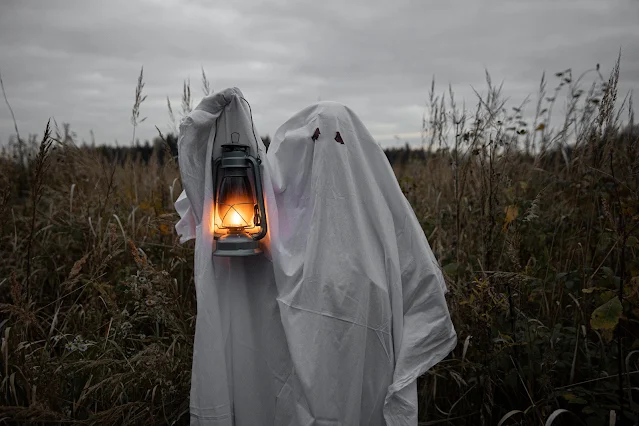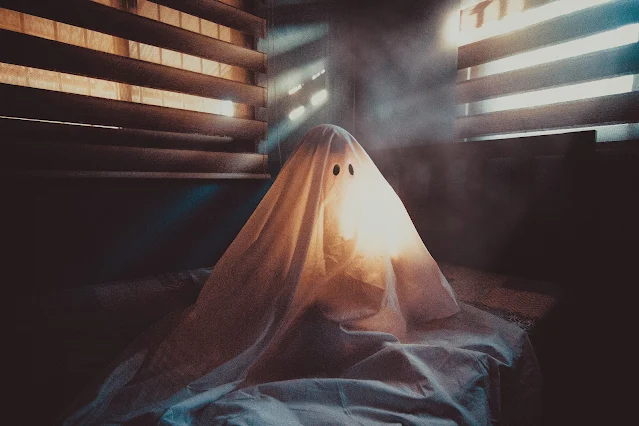Unraveling the Mysteries: Psychological Facts About Ghost Dreams
Dreams have long been a source of fascination and intrigue in the realm of the subconscious mind. They offer us a glimpse into the enigmatic labyrinth of our thoughts and emotions, often leaving us pondering their deeper meanings. Among the various types of dreams that people experience, one that frequently stands out is the ghost dream. These dreams, characterized by eerie encounters with apparitions and spirits, have captivated human imagination for centuries. In this article, we will delve into the world of "Psychological Facts About Ghost Dreams," exploring the origins, interpretations, and implications of these spectral nocturnal visions.
The Haunting Origins of Ghost Dreams
Ghost dreams have been a part of human experiences across cultures and periods. From ancient civilizations to modern societies, tales of ghostly encounters in dreams have left indelible marks on our collective psyche. But what exactly gives rise to these haunting visions within our subconscious minds?
1. The Power of Archetypes
In the realm of dream analysis, renowned psychologist Carl Jung introduced the concept of archetypes - universal symbols embedded in our subconscious. Ghosts, often representing unresolved issues or fears, can manifest as archetypal figures in our dreams. These dream apparitions may be symbolic of lingering guilt, unfinished business, or unaddressed emotions.
2. Personal Trauma and Grief
Psychologists suggest that ghost dreams can be triggered by personal trauma or grief. When we experience the loss of a loved one, our minds may struggle to cope with the emotions surrounding that loss. Consequently, these emotions may manifest as dreams featuring the deceased, appearing as ghosts in our subconscious minds.
3. Cultural Influences
Cultural beliefs and superstitions also play a significant role in shaping our dreams. In cultures where ghostly entities are prominent in folklore, individuals are more likely to experience ghost dreams. The cultural context can imbue these dreams with specific meanings and interpretations.
Deciphering the Enigma: Interpretations of Ghost Dreams
Ghost dreams are far from one-dimensional; their interpretations can vary widely based on the unique experiences and emotions of the dreamer. Here, we explore some common interpretations of these mysterious dreams:
4. Unfinished Business
One prevailing interpretation of ghost dreams is the notion of unfinished business. These dreams may serve as a subconscious urging to address unresolved issues or conflicts in waking life. They can be a reminder to tie up loose ends and find closure.
5. Lingering Emotions
Ghost dreams can also be a manifestation of lingering emotions, especially those associated with loss or separation. Dreaming of departed loved ones may signify the need to process grief or reconnect with cherished memories.
6. Fear and Anxiety
On the darker side of ghost dreams, they can be linked to fear and anxiety. These dreams reflect underlying fears or apprehensions, symbolizing the need to confront and overcome them.
The Ghostly Visitations: A Personal Experience
To better understand the psychological impact of ghost dreams, let's delve into a personal account of someone who has experienced these haunting nocturnal visits.
7. Sarah's Story
Sarah, a young woman in her late twenties, began having recurring ghost dreams after the passing of her father. In her dreams, she would see her father standing at the foot of her bed, silently gazing at her. These dreams evoked a deep sense of longing and sadness, as Sarah struggled to come to terms with her loss.
Through counseling and introspection, Sarah realized that her ghost dreams were a reflection of her unexpressed grief and the desire to reconnect with her father's memory. The dreams provided her with a channel to process her emotions and find solace amid her mourning.
Coping with Ghost Dreams
8. Self-Reflection and Journaling
For those who frequently experience ghost dreams, self-reflection and journaling can be valuable tools. Recording the details of these dreams can aid in identifying recurring themes and emotions, ultimately leading to a deeper understanding of their underlying causes.
9. Seeking Professional Help
If ghost dreams are causing distress or interfering with daily life, it may be beneficial to seek the guidance of a mental health professional. Therapists and counselors can provide valuable insights and coping strategies to address the emotions tied to these dreams.
Conclusion
In the intricate tapestry of the human mind, ghost dreams stand as a testament to the complexity of our emotions and experiences. They can be both unsettling and enlightening, offering a unique window into our inner selves. While their origins and interpretations may vary, one thing remains certain: the psychological facts about ghost dreams continue to intrigue and mystify, reminding us of the inexhaustible depths of the human psyche. As we navigate the ethereal landscapes of our dreams, we must remember that they are not merely specters of the night but a reflection of our innermost thoughts and emotions, seeking acknowledgment and resolution in the realm of the subconscious.










